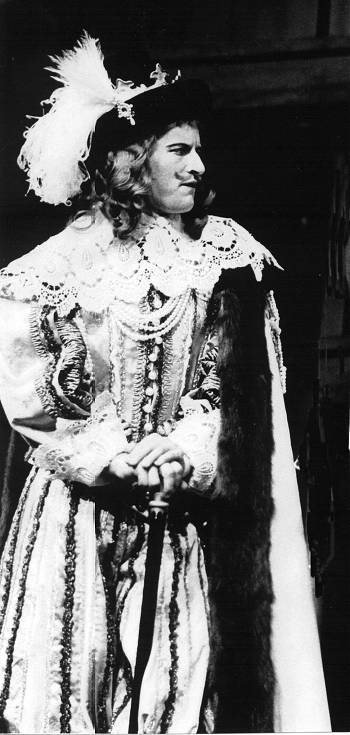Crackling Comedy At Chichester
Chichester Festival Theatre opened on Tuesday last with a production by Laurence Olivier of John Fletcher's The Chances, adapted by the second Duke of Buckingham. It was a memorable occasion. The handsome, comfortable theatre, set in rural surroundings, and the production itself combined to make this so in a unique way. Never before in modern times has such a theatre, with an open stage and a tiered auditorium in which all seats are virtually of equal value for one's enjoyment of the show, been built in a part of this country where no theatre ever stood before. And never have we known a new theatrical venture under the artistic direction of an actor-manager of the stature and experience of Olivier.
If the production of The Chances is taken as an indication of the standard, scope and imaginative quality of what is yet to come, all will be well during this first season. The play lends itself admirably to a director's individual treatment. It is so loosely written, so carefree in spirit and so full of character, wit and colour, that it positively invites exploitation by both director and players.
Spanish Blades
As Sir Laurence says in a programme note, and one could hardly put it better, the story boils down to this - "two Spanish Blades, Don John and Don Frederick on a romantic journey in Italy, get into some trouble". They chase women and fall in love. There are elaborate situations, involving mixed up identity, quarrelsome elders, ferocious guardians, and eager lechers. A newly-born child helps to create an air of mystery. There are girlish innocence and womanish whoring, grand nobles and pothouse ruffians. There is also a delightful old clown, as well as a raucous landlady who is mollified only by great draughts of wine.
The story swings along, bawdy, funny, exhilarating. There are dull spots, but these are adroitly skimmed over by Sir Laurence with his crackling, fertile production, which is as finely sensitive as it is rich in down-to-earth liveliness. And this was so on Tuesday despite the fact that Sir Laurence and the players had not yet been able exactly to guage the demands of the stage or of the acoustics. That these faults will be completely rectified was made as certain as maybe after the interval, when voices that earlier could not be heard clearly were heard very well, and when a certain lack of cohesion in the production, evident during the first act, was considerably improved during the second.
